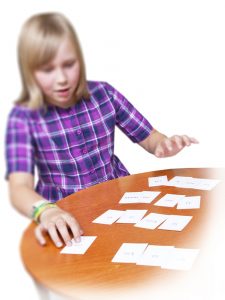What is the children’s’ research clinic?

The clinic for learning disorders is upheld by the Niilo Mäki institute and the family clinic of Jyväskylä that is specialised in research about learning disabilities in school aged children, as well as developing remediation techniques for the children in question. In addition, the children’s’ clinic provides advise and further knowledge about learning disabilities for psychologists.
Learning disabilities are mostly involved in reading, writing or mathematical abilities. They can also be expressed through attention deficits, motor control abnormalities or language deficits.
The primary goal at the clinic is to uncover reasons for the development and persistence of learning disorders, as well as unearth support mechanisms together with parents and teachers. Furthermore, another crucial component fulfilled at the clinic is gathering material for scientific research.
Over 800 children have been to the clinic for assessment and their contribution has accumulated a noteworthy database of information for research that aids in broadening the understanding of learning disabilities.
All matters in the research involving the child and his or her family are kept strictly confidential. Issues in the research will only be made available with parents’ consent.
What is done at the children’s’ research clinic ?
A child turns up at the clinic on an average of three times. The first appointment usually lasts three hours, where certain assessments are performed and is done during school hours. A fraction of the time is used for consultation with parents about their child’s progress and behaviour, which serves as valuable information for research. Further informative support for research is delivered from teachers.
Causative roles for learning disabilities are researched using copious of different tasks, such as:
- attention tasks
- language tasks
- memory processing tasks
- perception and motor ability tasks
- various problem solving tasks and
- reading, writing and mathematical tasks
After all assessments are performed, a consultation is done with the parents and teachers where support methods are discussed in order to aid the child’s learning process. Higher chances for the support methods to be successful are established if personal information about the child’s positive and negative attributes is provided for the psychologist. Collaboration with the parents and teachers is extremely valuable and important.
Ameliorating learning deficits can be done by isolating the child’s personal needs in the classroom, in special education and for remediation (for example speech- and performance therapy, neuropsychological therapy).
A portion of participated children receives private- or group therapy at the clinic. Most often the child attends remediation once a week. Remediation is scheduled for times when the child is off from school.
